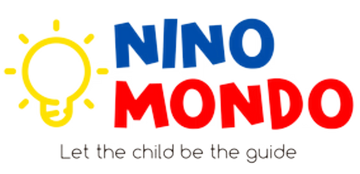
Dr. Maria Montessori
1870-1952
Dr Maria Montessori was one of the first female doctors in Italy in the 1800s.
While working in an asylum in Rome, she observed children with emotional and mental disabilities playing with breadcrumbs, not to eat but for stimulation of touch. Daily observation led her to realise that medicine isn't the solution for them but education.
With close observation and scientific approaches, she created educational materials for these children that would stimulate them for life rather than just academics.
Most children who were taught with the Montessori methodology passed state examinations with marks higher than children WITHOUT disabilities.
This made her question the traditional school system (for children without disabilities) and she set up her first Montessori Classroom, "Casa Dei Bambini" - House of Children, which was opened in January 1907.
Dr. Montessori believed that, given a free choice of activity, the children showed more interest in practical activities and Montessori's materials than in toys provided for them and were surprisingly unmotivated by sweets and other rewards. Children were given the freedom to choose and carry out their activities at their own pace and following their inclinations. First, she observed great concentration in the children and spontaneous repetition of chosen activities. She also observed a strong tendency in the children to order their environment, straightening tables and shelves, and putting materials in order. Over time, the children began to exhibit what she called "spontaneous discipline"
She continued to adapt and refine the materials she had developed earlier, altering, or removing exercises that were chosen less frequently by the children. She began to see independence as the aim of education.
Furthermore, she felt, by working independently, children could reach new levels of autonomy and become self-motivated to reach new levels of understanding. Acknowledging all children as individuals and treating them as such would yield better learning and fulfilled potential in every child.
It's been more than 110 years since the first class, but Montessori education continues to widely spread across the entire world. There are Montessori schools in every continent except Antarctica. Currently, there are more than 20,000 schools around the world.
